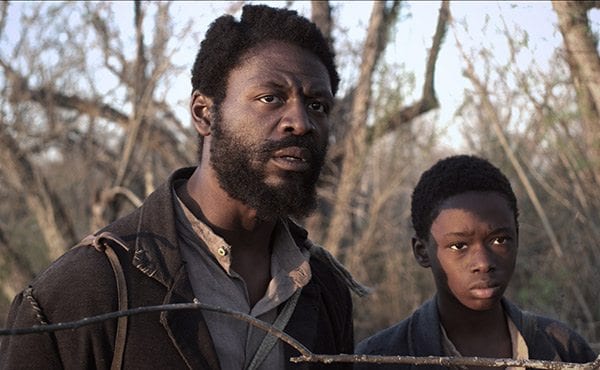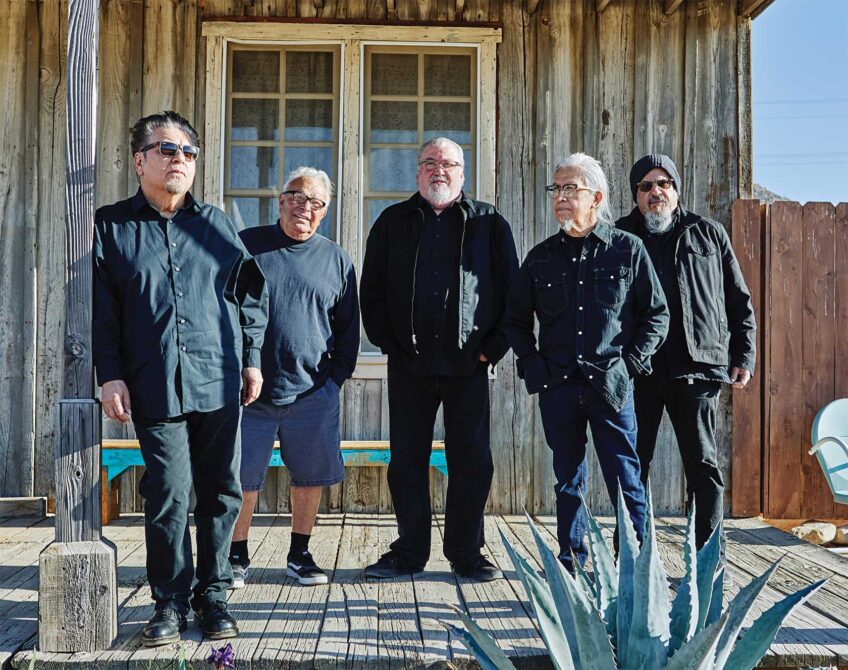Great Scott! ‘The Retrieval’ actor dishes on new movie, state of black film

Tishuan Scott is hitting the scene at a great time for black actors and black films and he is making his mark.
Scott was recently seen as “Kenieloe,” a Ghanian guru, in Andrew Bujalski’s 2013 Alfred P. Sloan Sundance Award-winning film ”Computer Chess” and as “Moses Washington” in the Lifetime Network TV movie “Deliverance Creek.” But his turn as “Nate,” a freedman gravedigger for the Federal Union Army, in “The Retrieval” has people taking notice the most — and won him the South by Southwest Festival 2013 Special Jury Prize for Acting Breakthrough Performance.
Scott was born on October 27, 1979, in Shreveport, La. He attended Morehouse College in Atlanta, as an Oprah Scholar, and graduated with Bachelor of Arts in drama and psychology in 2002. He then attended the University of California at Los Angeles’ School of Theater, Film & Television as a Lloyd Bridges MGM/Outer Limits Fellow, where he received a graduate fine arts degree in acting in 2006.
He recently spoke to the Banner about this career so far and his exciting role in Civil War era adventure “The Retrieval.”
What interested you in “The Retrieval?”
The story, writing, characters, and relationships. It’s history.
It explores the themes of trust and betrayal during slavery, just as “12 Years a Slave” did. How would you compare the two pictures?
The films’ singular comparison is that Solomon Northup is a free man who is enslaved for profit through the brutal trade and oppression of the system of slavery, and my character, Nate, a freedman, is sought after to make a profit, a bounty, by the patty-rollers who seek to re-enslave him. Both films share an insight to the great capitalization of the African-American male life, to be debased as worthless, yet so extraordinarily invaluable. There are also grander contrasts between the two films, however: “12 Years”: 1841; “The Retrieval”: 1864. “12 Years”: Pre-Emancipation Proclamation; “The Retrieval”: Post-Emancipation Proclamation. “12 Years”: brutality; “The Retrieval”: Humanity.
Last year, was a banner year for black film with “12 Years a Slave,” “42,” “Fruitvale Station” and “The Butler.” What effect do you think that will have on Hollywood in terms of opportunities for African Americans in front of and behind the camera?
I believe it transcends Hollywood. It’s bigger than that. Our film has played in Toronto, Calgary, Montreal, Quebec, Brazil, Australia, France, Serbia, Greece, Germany, London, Turkey, Belgium, Egypt, and all over the U.S. in a myriad of film festivals, clearly displaying that there is an international and national interest and demand to see dark chocolate-skinned folks on the silver screen to observe and immerse an audience in the forgotten histories of who we are as a people and what we were as a nation. This canon of films will inspire many indie filmmakers and, hopefully, Hollywood to realize that our wealth is in our history, that we have so very many stories yet to be told. All five films have African-American male leads. You left out “Mandela: Long Walk to Freedom” — that makes six. That is exemplary and thrilling, but there are also stories with African-American women that must be told. We need African-American female lead actresses in films, in tandem with African-American male leading actors.
How do you pick a role?
I don’t believe I pick them. I think the universe sends me what’s for me. What attracts me specifically to roles is the heart of the character. How does the story move me? What is the character’s journey or driving force? Where is the character headed? Why is the character headed there? There absolutely and unequivocally has to be depth.
You received two degrees in theater before starting your career. Do you recommend that route to aspiring actors?
Yes. I met Samuel Jackson at our 2001 Morehouse College Gala: Candle in the Dark. I tell people what he told me. “Take your time. Get your education.”
With so many classic films being redone, is there a remake you’d like to star in?
I don’t care for remakes. There’s so much undiscovered material out there; old and new. I want to be original. August Wilson’s “Fences,” Gloria Naylor’s “The Men of Brewster Place,” Richard Wright’s “The Outsider,” “Black Theater USA: Plays from 1847-1938” has a myriad of material yearning to be on the stage and screen. Those are classics to me.






